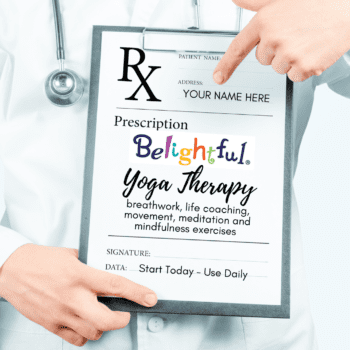There are tremendous benefits to practicing mindfulness in recovery. That’s because this type of meditation teaches us to be aware of feelings and sensations in the present moment without getting caught up in or judging them.
Simply put, mindfulness is an effective tool for retraining your brain.
And cultivating awareness of experiences without becoming reactive or overwhelmed helps alleviate stress and anxiety – two major triggers that can impede recovery.
This Is Your Brain on Mindfulness
When it comes to mindfulness, two major players in the brain are the medial prefrontal cortex (mPFC) and the amygdala.
Known as the “me center,” the mPFC is where worries about the future and nostalgia from the past are processed. When we experience stress, it sends the mPFC into high alert which, in turn, activates the amygdala. This is the part of the brain responsible for the fight or flight response.

The amygdala and the mPFC can get locked into an overwhelming cycle – leading to discomfort and the need to fight it or escape it (often via substances or damaging behaviors). But mindfulness helps to regulate these emotions by placing a disconnect on these two parts of the brain.
In addition, mindful meditation also helps protect the hippocampus. Practitioners who commit to just 30 minutes per day have an increased volume of grey matter in the hippocampus. This also leads to an improved ability to regulate emotions and be less vulnerable to negative thinking and feelings of worthlessness.
The Role of Mindfulness In Recovery
The brain is similar to muscles in that it grows bigger and stronger with exercise. The problem is, repeatedly engaging in negative thoughts and behaviors shape the brain in ways that work against us. And this can lead to addictions.
Fortunately, mindfulness exercises work the same way to form new circuits and bring greater awareness, control, and happiness to life. It all starts with these five basic principles:
1. Paying Attention to Your Breath
There’s plenty of stress out there to go around. And it’s all too easy to get caught up in it. When you’re constantly barraged by stress, it can lead to feelings of being overwhelmed. For those in recovery, this can be a trigger to turn to alcohol, drugs, or damaging behavior to cope. So it’s important to gain tools to keep recovery on track.
One of the most direct routes to de-stressing is through the breath. And mindfulness practices such as meditation and yoga ask us to do just that. Rather than getting upset by external circumstances over which we have no control, we instead focus inward on something we can control – our breath.
Mindfulness teaches us to use this important component of the body’s natural healing powers to manage stress. And it’s a tool we always have at our behest.
2. Recognizing You Are Not Your Thoughts
The ways we think about ourselves and those around us are what drive our feelings and actions. During the more difficult times of recovery, it’s easy to get sucked back into destructive negative self-talk. And it’s even easier to not notice you’re doing it.
To be successful, recovery requires energy and hope. But when we’re bogged down with self-deflating thoughts, things can get dark pretty quickly. And these false misconceptions and thoughts start to feel like reality. Through mindfulness practice, we learn to be aware of such thoughts and how they damage us so we can begin to let them go.

3. Embracing Stillness
For many of us, sitting still feels like torture. Especially if we’re not yet in tune with our breath or damaging thoughts. Furthermore, society seems to place less importance on the human being than the human doing.
But society is mistaken. Our worth is not, in fact, proportionate to how much we do. Moving away from the busyness of life and regularly moving into stillness opens our hearts and minds. It gives us a chance to hit the “reset” button. It is in this quiet mindfulness where we discover amazing truths that give life meaning and purpose.
4. Practicing Compassion
Building healthy and healing relationships is crucial for recovery. Yet for many, years of addiction limited this ability to connect with others in a meaningful way.
In order to make deeper connections, we must practice compassion. It is from this space that we see ourselves and others without all of the judgments, criticisms, and stereotypes that build walls. The lens of compassion allows us to forge relationships with a foundation in tolerance, kindness, and empathy.
Mindfulness is also the understanding that we don’t have to like everyone or be forever approving. But rather, working from compassion breaks down the walls that have fostered the “us” and “them” mentality, rather than seeing everyone as all part of the greater whole.
5. Being Here NOW
A key component of addiction is to escape the stress and anxiety that come with any given moment. By contrast, mindfulness teaches us that being present enables us to cope with reality as it is and not how we perceive it.
But increasing awareness and opening our eyes to this moment, right here, right now, is incredibly powerful.
Because if we’re always distracted by a screen or work or conversations, we’re on auto-pilot and there isn’t much chance to be wholly and truly present. We’re missing out on the many nuances of life and failing to recognize our own potential. And life’s just too short for that.
Interested In Mindfulness Practices?
We’ve seen firsthand the benefits of practicing mindfulness in recovery. As a mobile service that provides these practices to companies, organizations, and schools, we’re proud of the work we do with those in the recovery community.
So whether you’re in recovery, or just curious about how mindfulness practices can improve your life, contact us today. We love sharing our success stories and would love to make yours the next one.



